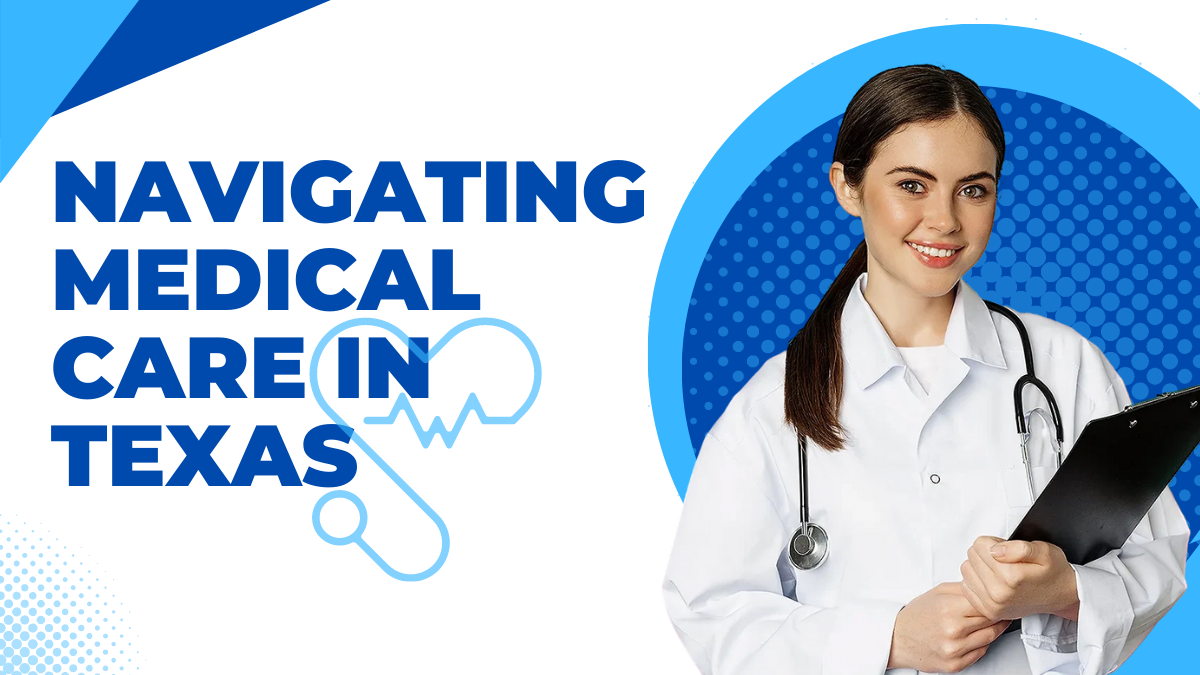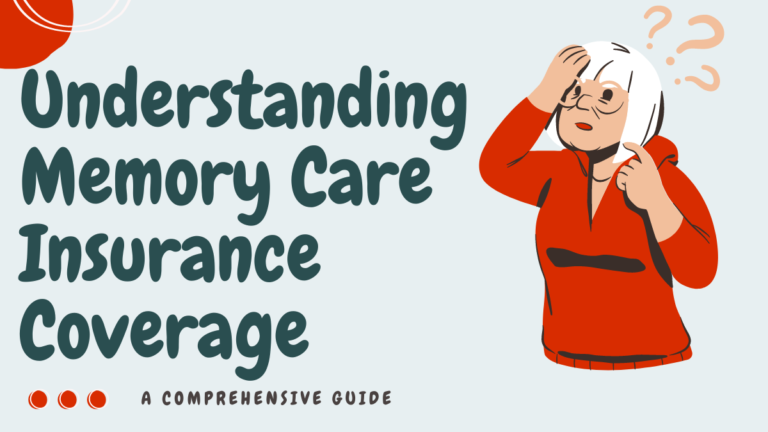Navigating Medical Care in Texas: A Comprehensive Guide for the Uninsured

Welcome to the Lone Star State, where everything is bigger – including the challenges of navigating medical care without insurance. The unfortunate truth is that millions of Texans find themselves in this predicament, facing a daunting maze of healthcare options and confusing bureaucracy.
Fear not! In this comprehensive guide, we will unravel the complexities and arm you with essential tools to confidently navigate your way through Texas’s healthcare system. Whether you’re an uninsured individual seeking affordable treatment or someone supporting the uninsured community, join us as we embark on a journey towards accessible and quality medical care for all. It’s time to take charge of your health!
Table of Contents
What is the Texas Health and Safety Code?
The Texas medical care is the primary set of legislation governing health and safety in the state. It organizes medical care into 12 chapters, each containing a variety of regulations regarding hospitalization, physician services, pharmacies, nursing facilities, public health activities, food handling, and more. The Code also establishes penalties for violations of its provisions.
The Health and Safety Code is extensive and complex. A full understanding of its provisions may require consultation with an attorney or other qualified professional. However, the following overview provides an overview of some key aspects of the code that may be relevant to medical care providers in the state.

Chapter 151 defines hospital admissions as any action taken by a doctor or other medical professional intended to stabilize a patient who is ill or injured so that they can be treated at a hospital. This includes providing appropriate medications and equipment when necessary.
Chapter 152 regulates hospitals and outlines their statutory powers and duties. It sets forth requirements for construction, maintenance, operation, personnel management, recordkeeping, financial affairs, reporting accidents and incidents to authorities, and more.
Chapter 153 deals with the licensing of physicians in the country. Physicians must be licensed by the board before they can practice medicine in the state. They must also comply with various requirements related to education (including minimum amounts of residency training), experience (including number of residents they have supervised), drug testing requirements, ethics rules (required courses include a course on human rights), and more.
Chapter 154 sets forth requirements for the operation of medical clinics. These include requirements for the design of clinic buildings, registration with the state, compliance with health and safety regulations, and more.
Chapter 155 contains provisions related to nursing homes. These include licensing requirements, supervision requirements (including criminal background checks on employees), procedures for fire safety and prevention, and more.
The Texas Health and Safety Code is complex and extensive. A full understanding of its provisions may require consultation with an attorney or other qualified professional.
Who is Eligible for Medicaid in Texas?
In Texas, individuals who are eligible for Medicaid include those with income up to 133% of the Federal Poverty Level (FPL), pregnant women, children under 19 years old who are either unmarried or pregnant, and families with incomes up to 200% of the FPL.
Eligibility also varies by county in Texas. For instance, residents of Harris County are eligible for Medicaid while those in Travis County are not. The full list of eligibility requirements can be found on the Texas Department of State Health Services website.
Anyone who meets the eligibility requirements must then apply for Medicaid through their county health department. Application forms and other necessary information can be found on the website of the Texas Health and Human Services Commission.
Applicants must also provide proof of citizenship or residency, such as a driver’s license or utility bill. Persons applying for Medicaid should allow at least 45 days for processing their application. If an applicant is declined for insurance reasons, he or she can appeal this decision through the state health department.
Who is Eligible for Children’s Health Insurance Program (CHIP) in Texas?
In Texas, the Children’s Health Insurance Program (CHIP) is available to children who are not covered by other forms of insurance, as well as to their parents or guardians. To be eligible for CHIP in Texas, your child must be:
- Uninsured
- A resident of Texas
Enrolled in school full time (or in a special education program that meets the same requirements) You may be eligible for CHIP even if your income is too high to qualify for other forms of health insurance. Your eligibility will be reviewed annually based on your adjusted gross income and family size. How much you pay for CHIP depends on your income and family size.
For 2018, the monthly premium for an individual is $5.95 or 2 percent of household income, whichever is greater. The premium for a family is $13.65 or 4 percent of household income, whichever is greater.
How to Obtain Medi-Cal in Texas?
If you are uninsured or underinsured, or if your health insurance does not cover the full range of health care services that you need, then you may be eligible for Medi-Cal in Texas.
- To be considered for Medi-Cal in Texas, you must meet the following requirements:
- You must be a resident of Texas.
- You must be a U.S. citizen or a legal permanent resident.
Your income cannot exceed 133% of the federal poverty level. This means that your income cannot exceed $16,643 per year for an individual, or $32,194 per year for a family of four. If your income is below these levels but still exceeds the costs of medical care in Texas, you may still qualify for Medi-Cal through a Medicaid expansion program under the Affordable Care Act (ACA).
Children under 18 years old and pregnant women are also exempt from these limits and may qualify for coverage through Medi-Cal regardless of their family’s income.
Once you meet the eligibility requirements, you can apply for Medi-Cal by contacting your local county office of social services (COSSO). You will need to provide proof of citizenship or residency, your social security number, and dates of birth for all members of your household.
You will also need to provide information about any health insurance that you currently have, and if you are unable to pay for all of the costs of medical care yourself, you will need to provide information about any financial assistance that you may be eligible for.
Once your application is approved, COSSO will send you a notice containing specific information about the terms and conditions of your coverage. You will also be required to sign a contract of eligibility, which will set out your responsibilities and obligations as a Medi-Cal patient in Texas.
How to Obtain Health benefits through an Employer in Texas?
In Texas, there are a variety of ways that you can obtain health benefits through your employer. Additionally, many companies offer supplemental insurance plans that provide additional coverage for medical expenses not covered by employee health insurance.
In order to find out if your company offers these benefits and to learn more about the specific requirements and procedures involved, speak with your human resources department or consult with a qualified healthcare advisor.
In general, employers in Texas must offer at least minimum essential coverage to employees or their dependents. This option must include both primary and secondary medical coverage. To qualify as primary medical coverage, the plan must “provide for the first $5,000 per individual per year in eligible costs relating to hospital care, including doctor’s appointments, lab tests and medicine.”
The maximum payout for each policy year is currently $7,500. Secondary medical coverage must cover “all other eligible costs,” which can include Supplementary Health Insurance Plan (SHIP) premiums and out-of-pocket expenses such as co-payments and deductibles.
In addition to providing health benefits through their own company policies, some large employers participate in state-sponsored health insurance plans called MaCare or Medi-Caltex programs.
These plans cover a wide range of medical expenses with no copayments or deductibles. Eligible employees may also be able to join designated public healthcare programs like Medicare or Medicaid if their income qualifies them for assistance.
Making a Claim for Medical Insurance Payments in Texas
Finding the right healthcare provider and getting the services you need can be a daunting task for individuals without insurance. If you are uninsured and experience a medical emergency, make sure to know your rights under Texas law. Here is what you should do if you believe that you have been wrongfully denied coverage or payments for medical services:
- Check with your insurer to find out whether or not they have any policies or procedures in place regarding claims processing.
- Seek legal assistance if your insurer fails to honor your claim or negotiate on your behalf in a timely manner.
- File a formal claim with the appropriate government agency (such as the Texas Department of Insurance) if necessary.
- Make sure that all necessary paperwork is completed in order to support your claim, including copies of relevant patient records, billings, and correspondence between yourself and the healthcare provider(s).
Conclusion
If you are uninsured or underinsured, this guide is for you. It provides an in-depth overview of the Texas medical system and describes how to access the care you need without resorting to expensive emergency room visits or out-of-pocket expenses.
Topics include: Medicare and Medicaid coverage; enrolling in health plans; obtaining care through state hospitals and clinics; filling out necessary forms; getting help from navigators; and more. This comprehensive guide will arm you with the knowledge you need to make wise decisions about your healthcare, whether you live in Texas or any other state.






